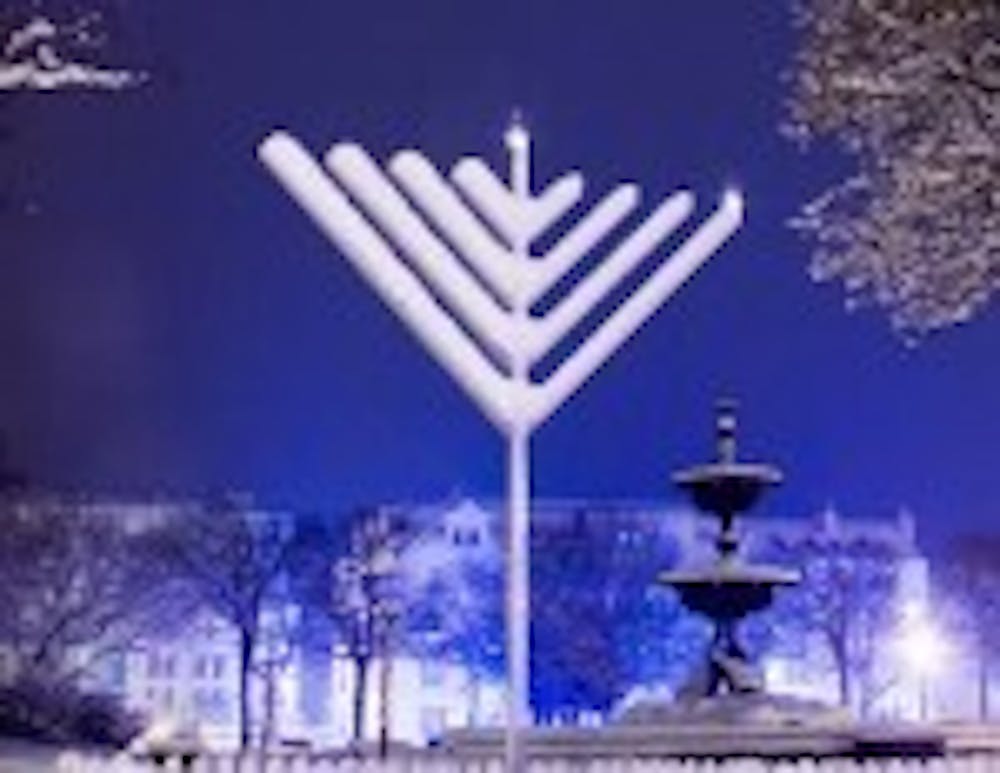While many individuals associate the month of December with winter break and Christmas, a vast number of students hold many different meanings when it comes to the month.
There are many different and interesting religions and traditions that are celebrated throughout the winter months by students from all over the world.
In the Muslim religion, a festival called Eid ul-Fitr, meaning "festivity," is celebrated for a few days as a conclusion to Ramadan, the fasting period where Muslims fast from sunrise to sunset for a month.
The holiday, commonly shortened to Eid, is spread out over three days, and large family gatherings usually occur on the first day. Many families start the day with an 8 a.m. to 10 a.m. prayer. Following the prayer, family members wish "Happy Eid" to one another and enjoy a well-prepared lunch.
Syed Abdula Hussaini, a senior in the school of architecture and planning, looks forward to celebrating Eid with his family and recalls certain activities during the three-day holiday since he was a child.
"The part that I loved most about the holiday as a kid was when an elder sibling or member is supposed to give you cash ... It came in handy when I wanted to buy games for PlayStation or Nintendo," Hussaini said.
Aside from cash gifts, people usually congregate together during the day and visit with relatives. Then, many go out to dinner with their families or have a gathering at their house.
"The holiday is my favorite because it revolves around a lot of food, sweets, seeing all of your family together, and watching kids try to decide what they want to buy with their cash gifts. This has been my holiday tradition since I can remember," Hussaini said.
Another religious holiday commonly celebrated is Hanukkah. Also known as the Festival of Lights, Hanukkah is an eight-day Jewish holiday that commemorates the rededication of the Holy Temple in Jerusalem. The holiday begins on the 25th day of the Jewish month Kislev, which changes yearly according to the Jewish calendar.
The holiday is observed for eight days and nights and every night one candle is lit on the menorah, until the eighth night when all candles are kindled. The first candle, known as the shamus candle, is lit on the first night and then used to light the other candles.
Some Jewish families also practice more obscure traditions, such as cooking fried food in respect to the importance of oil on the holiday, while others play with dreidels and give gifts.
David Siegel, a sophomore digital media major, shares some family traditions that he takes part in during Hanukkah.
"All my family basically does is light candles, say prayers, meet up and relax with family and friends, and give gifts to one another. We also cook a lot of food," Siegel said.
Paganism is a belief system that places less emphasis on any god or power and more on the importance of nature.
Pagans celebrate Christmas, but unlike Christians, they refer to their holiday as the Winter Solstice. The Winter Solstice occurs around Dec. 21 of each year and is a day sacred of the sun, thunder, and fire deities.
This time of year celebrates the return of light because it is celebrated on the longest and darkest night of the year. From that night on, the daylight begins to increase.
Many pagans believe that the mistletoe is a sacred plant and the custom of kissing under the mistletoe began as a fertility ritual.
One common symbol that unites those who celebrate some type of Winter Solstice is the evergreen tree, which represents good luck and eternal power for pagans.
Victoria Zajac, a senior psychology major, has celebrated Winter Solstice with her family and friends for as long as she can remember.
"Most pagans dance and have a fire where they burn things that they want to bring into their lives," Zajac said.
Pagans also believe that the Christmas tree has great significance. Gods and goddesses are placed at the top of the tree, hence the star, which is seen as symbol of protection.
Many people of this religion will decorate the Christmas tree with ornaments or symbols of things that they want to bring into their life in the new year.
"My Polish grandma used to practice ‘apautec,' where you take a wafer that is made by Roman Catholic nuns, break it into pieces and feed it to each member of your family, and say a prayer for them in the new year," Zajac said.
Adedamola Ayandele, a sophomore business major, comes from a Nigerian family that practices Christianity and celebrates Christmas like many people.
"For Christmas, my family goes to church the morning of Christmas day and then right after all the ladies go to the kitchen to cook while the men just relax or play around," Ayandele said. "Relatives and friends come over for lunch while we sit at the table and talk about what has happened the whole year. We also exchange gifts and talk about what we're thankful for."
Like Ayandele, many students practice the tradition of giving gifts and eating with family, but every family has a different version for celebrating during the holidays.
E-mail: features@ubspectrum.com





